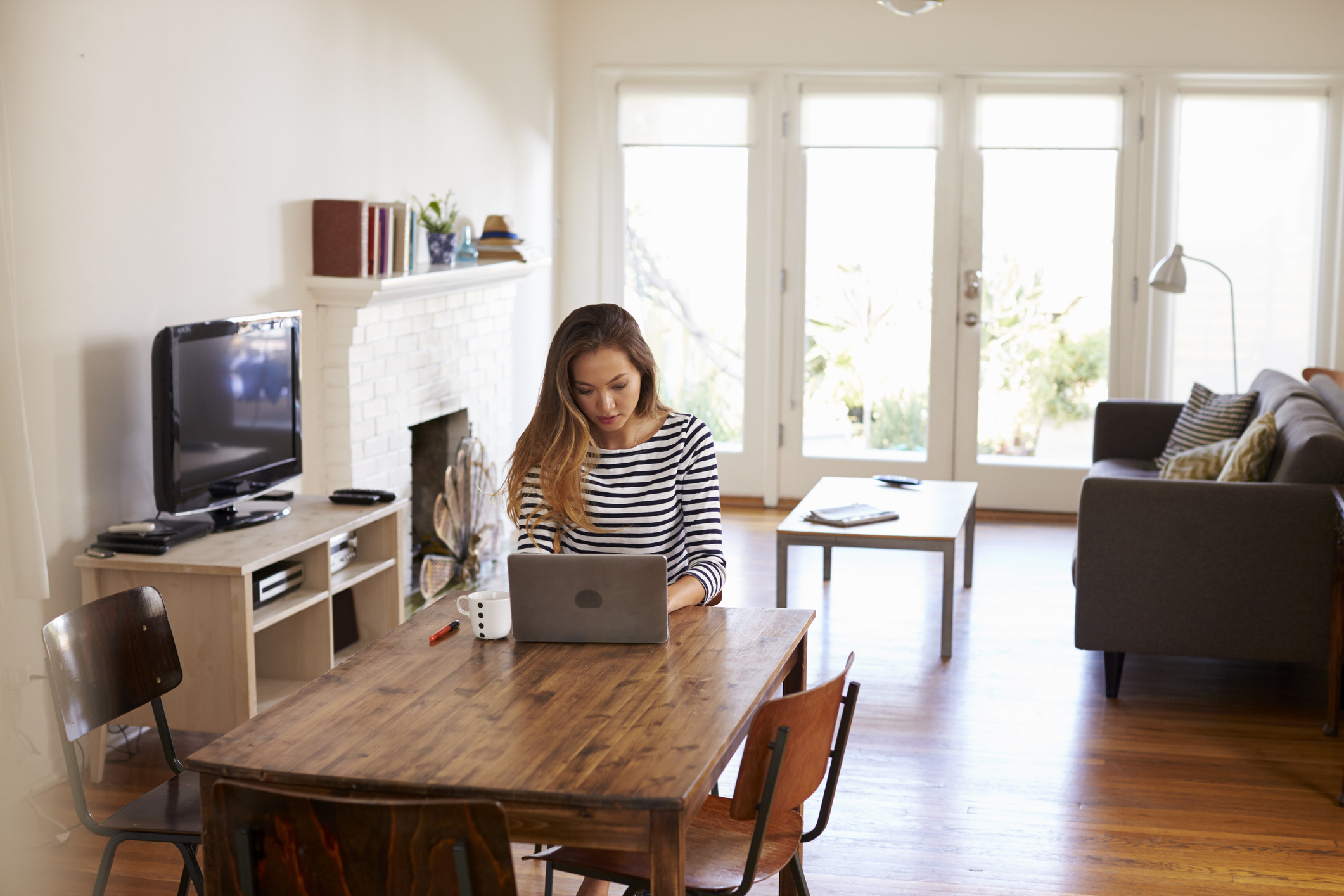Working from Home? Here's How You Can Reduce Your Energy Usage

Feb 8, 2021
If you're working remotely these days, you may have started to see your energy usage increase as you spend more time living and working in your home. Here are some tips to help you increase the energy efficiency of your home—helping you save both money and the planet:
1. Be smart with your thermostat. One of the most effective ways to reduce your energy usage is to manage your thermostat wisely. Turn your thermostat down at night or when you’re out of the house to save energy and money.
2. Don’t pay for electricity you’re not using. Unplug electronics such as computers, chargers, and small appliances when they’re not in use, and only plug in and charge devices when you need to.
3. Only turn on your heat or air conditioning when necessary. Utilize natural sunlight, thermal curtains, or even blankets and sweatshirts instead of turning up the heat, and turn on fans or open windows as an alternative to AC.
4. Only heat necessary places. Try to avoid heating areas of your home that don’t need to be heated (and might not be insulated), such as your garage, attic, basement, or crawlspace.
5. Green your décor. Check that all the vents in your home are clear of furniture. Keep lamps and televisions away from your thermostat for a more accurate temperature reading. Also, to use less energy for lighting, put lamps in the corners of rooms to allow the light to reflect off the walls and light up the room more.
6. Turn down your water heater. Water heating accounts for 18% of the average utility bill. Turning down the temperature of your water heater to the warm setting (120°F) can help reduce your energy consumption.
7. Invest in a smart thermostat. By allowing you to adjust the temperature from your smartphone and automatically self-adjusting based on the current weather, smart thermostats can help keep you comfortable when you’re home and save energy when you aren’t.
8. Switch to energy-efficient lighting. Did you know LED bulbs use at least 75% less energy and last 25 times longer than incandescents? Swapping out your incandescent bulbs for LEDs can save a ton of energy and money over time.
9. Replace your air filters to improve airflow and increase the efficiency of your heating system. Simply replacing your air filters can lower your energy consumption by up to 15%!
10. Clean your air ducts and vents. Cleaning out all the dust and dirt that has accumulated makes things easier for both your lungs and your HVAC system. You’ll save energy and may even increase the system’s lifespan.
11. Seal any air leaks. Caulking, sealing, and weather-stripping cracks and openings around your windows, doors, or any other openings can help keep air from leaking out of or into your home, helping your HVAC system run at maximum efficiency.
12. Have your heating system serviced. Having your HVAC system inspected, cleaned, and serviced at least once a year helps ensure it’s working at maximum efficiency.
13. Seal your air ducts. Leaky air ducts can reduce a HVAC system’s efficiency by up to 30%. Seal and insulate your ducts to help your HVAC system more efficiently.
14. Update the insulation of your attic, doors, windows, floors, roof, and walls to help prevent heat or AC from escaping your home.
15. Use cold water for your laundry to reduce energy usage. You can also hang dry your clothes as an eco-friendly alternative to the dryer.
16. Switch to Energy Star appliances to increase your home's energy efficiency.
17. Choose clean energy! Once you’ve taken all these steps to reduce your energy usage, make sure the energy you do use comes from clean sources such as wind and solar. Sign up for 100% clean, renewable energy today!
Stay in the know
Learn about clean energy, climate tips, special offers, and more



